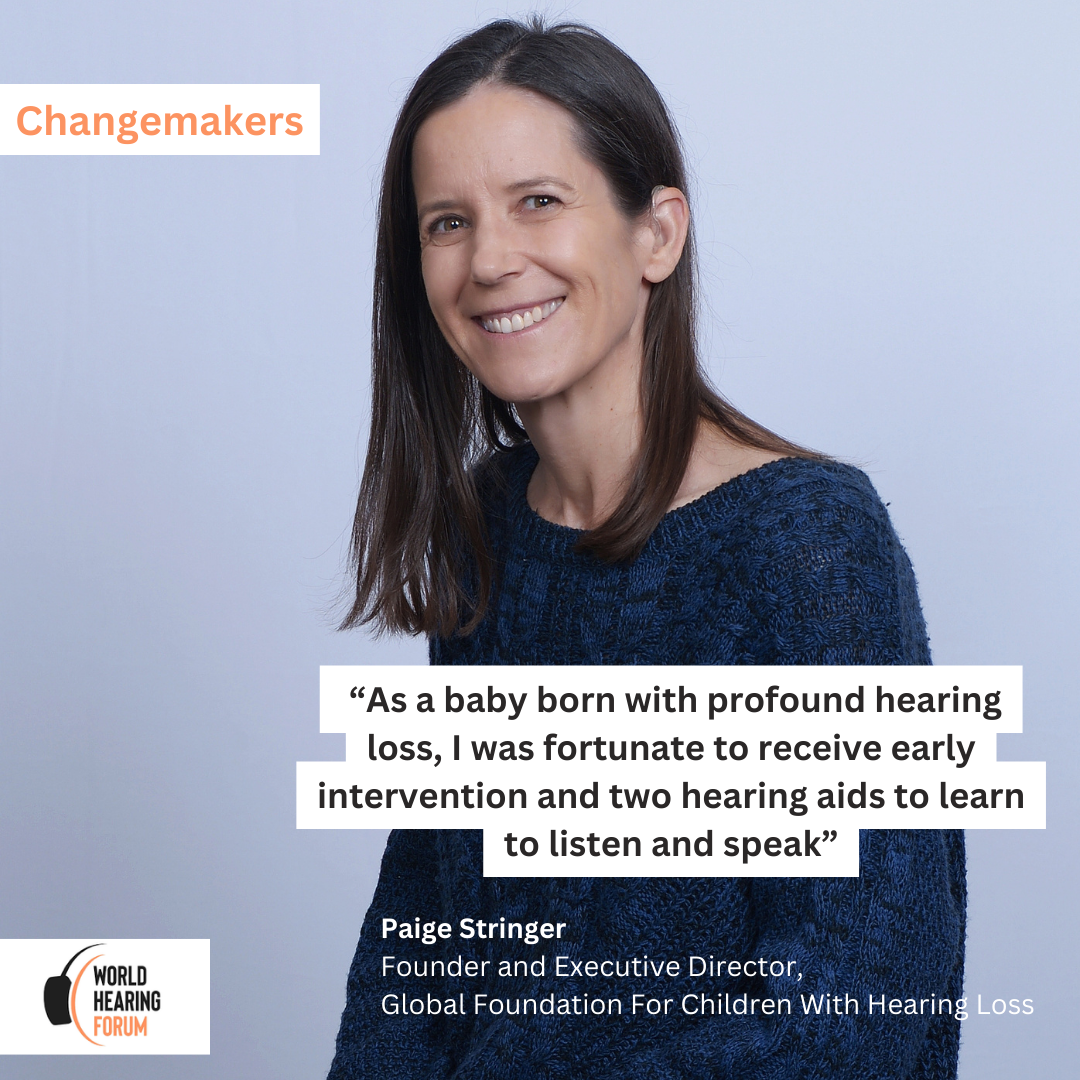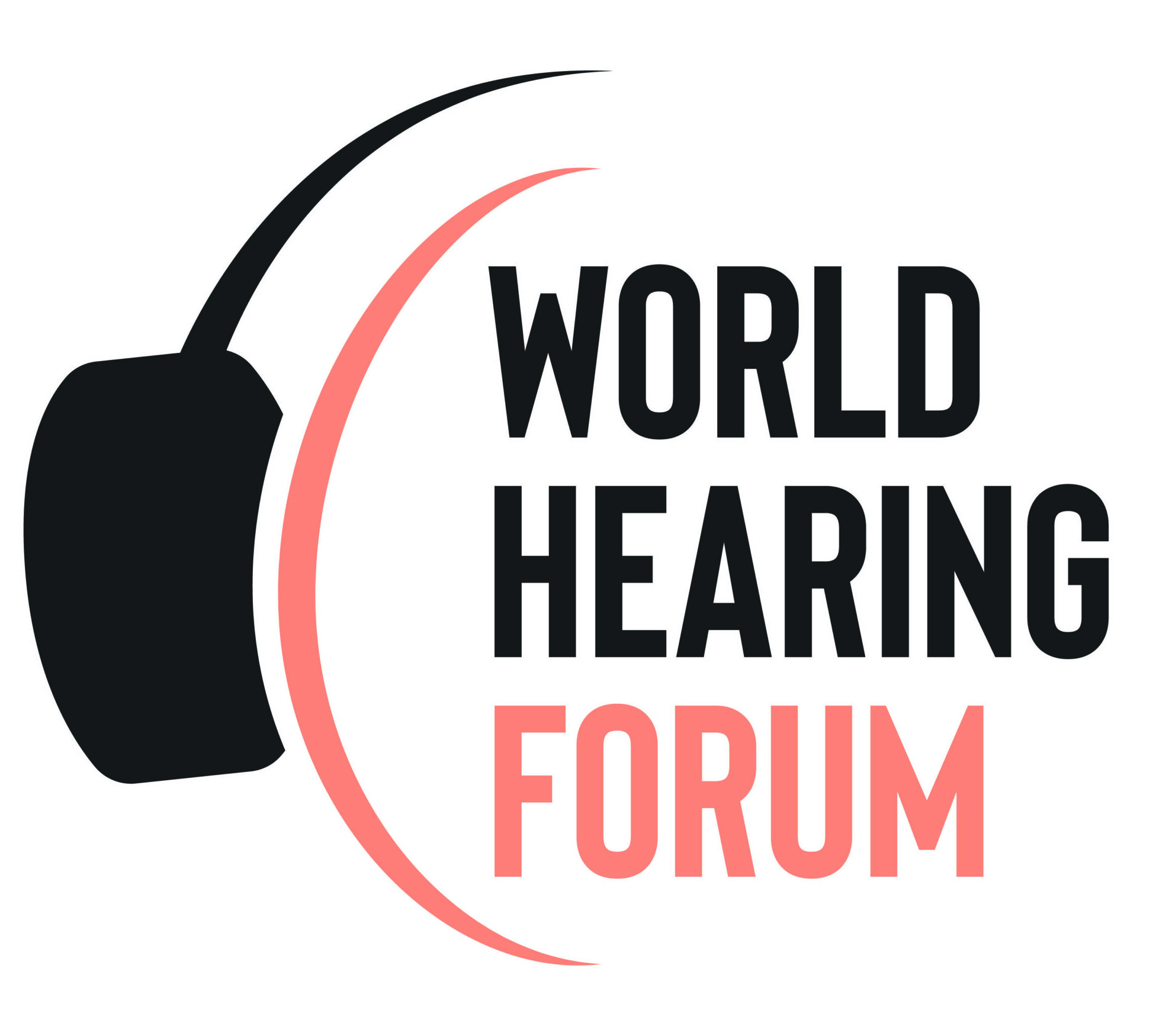
Paige Stringer Founder and Executive Director, Global Foundation For Children With Hearing Loss USA
The course of our lives is greatly influenced by where we are born and the opportunities that are afforded to us. I was fortunate as a baby to be living in England when a public health nurse identified a possible issue with my hearing. She quickly referred my family to an audiologist who confirmed that I have a severe to profound hearing loss.
I was immediately fit with hearing aids. As there is no history of deafness in my family, my parents were grateful to be guided by knowledgeable, local professionals with the expertise to help me learn to listen and speak.
As a result of this early identification and early intervention support, which began in England and continued in my native United States, my speech, language, and cognitive skills developed on par with children of typical hearing. I joined hearing peers in mainstream schools for my entire academic career. I earned a full tennis scholarship to the University of Washington, achieved a successful corporate marketing career, attained two Master’s degrees including one in Global Health, and have led a full and independent life.
When hearing loss is identified and addressed at birth or shortly thereafter, its effects on child development can be mitigated. However, the window of time to best mange to pediatric hearing loss is very short. If left untreated, or dealt with later, developmental delays manifest that may have permanent ramifications on a child’s future.
I recognized early on that living with my hearing loss in a world where most people have normal hearing creates a unique experience. That said, it was not until a life-changing event that I began to realize just how fortunate I was to receive such important foundational services as a baby. As I would later learn, these types of hearing care services are not widely available in many countries of the world.
In 2008, I volunteered at a school for the Deaf in Vietnam. The director of the school had been to Europe a few years earlier to study early intervention for children with hearing loss. She had returned to Vietnam determined to implement such services as they were lacking in her own country.
When I arrived at the school, she was surprised that I could listen and speak despite a significant hearing loss. As I was a product of the very early intervention she was looking to achieve, she was interested in my personal story. I presented as a contrast to the children who attended her school, many of whom had better hearing than I did. They were limited in their speech and language development as their hearing loss went undetected for too long and they simply did not have the appropriate assistance they needed. I reflected deeply on the differences in our life outcomes that resulted from the inequities in the services and support we received.
I appreciated the passion of this school director and the efforts of the many professionals in Vietnam to overcome significant gaps in the care continuum for the thousands of young children with hearing loss in their country. As I learned about the prevalence of hearing loss globally and the widespread dearth of infrastructure, awareness, and local expertise to administer pediatric hearing care services, I was motivated to help change this reality.
In 2009, I started the Global Foundation For Children With Hearing Loss (GFCHL) to help babies and very young children with hearing loss, living in low and middle income countries have similar opportunities for successes in life that I was fortunate to have.
Our non-profit organization works internationally with its local partners to establish all the elements in the continuum of care (hearing screening, hearing technology, family support, and habilitation services) that are equally essential for positive outcomes. The GFCHL teaches its proprietary, in-country training curriculum to develop locally based professional expertise required to help infants and young children with hearing loss to communicate and thrive. Those we train are prepared to train others to make the benefits repeatable and sustainable.
As the GFCHL has expanded its work from Vietnam to other countries over the past decade, we have helped hundreds of infants, young children and their families. My comprehension of the myriad of challenges and limitations that young children with hearing loss face has deepened and I continue to apply new solutions to our successful programs.
My involvement with the World Health Organisation has offered valuable insight into how a public health approach can help to alleviate some of the challenges of our field, so that more children with hearing loss can access the timely care, expertise, and services they need for healthy, productive lives.
When I travelled to Vietnam in 2008, I could never have known that my experience would be the start of an incredible journey. I am grateful that I have been able to pay it forward in this way. Working together, we can ensure that the thousands of infants and young children with hearing loss around the world can achieve their full potential.
